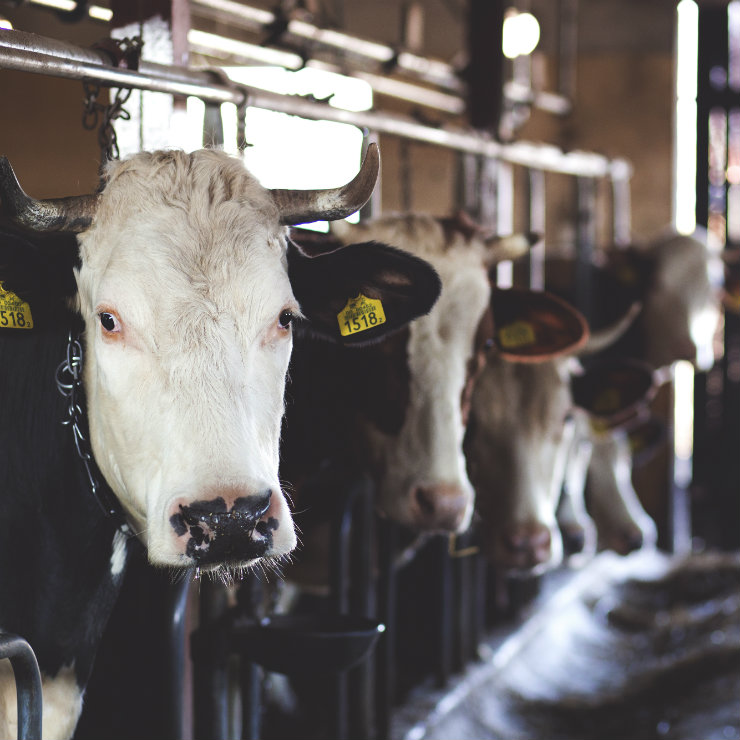Tydzień w gospodarce
Category: Raporty

(freestocks.org, Public domain)
„Do we like the idea of spending public money to finance acquisitions of foreign companies in order to ensure the expansion of domestic industry and Polish brands? Of course not, but Polish companies obey the rules imposed by their competitors,” write the authors of the report „Barriers and Impediments for Polish Companies in the European Union” prepared by Warsaw Enterprise Institute (WEI).
„We have to get rid of our romantic look at the European Union. We have to realize that this also involves constant struggle, vigilance, and in the case of gross violations by public officials, requires bringing matters to the court, so that the other party understands that restrictions are not unlimited and that the other party should be ready to face a firm response,” said Tomasz Wróblewski, the President of WEI.
The representatives of WEI and Polish Investment and Trade Agency (PAIiH) emphasize that the Polish diplomatic services should respond to cases of protectionism against Polish products. They should also monitor legislation applicable in the EU countries and inform Polish entrepreneurs about the difficulties they may encounter in specific industries.
Meanwhile, the entrepreneurs themselves may consider applying the ultimate solution to such problems, i.e. taking over foreign competitors or their brands.
„Polish furniture, turbines, car parts, domestic preserves and food products, as well as electronics are popular in Western Europe as long as their producers agree to sell them under a foreign brand and to give a significant part of the profit margin to foreign companies. Sometimes, it happens that Polish windows in Germany or Polish beds in Great Britain are able to compete with the local products only due to the fact that they are sold under the brand name of a local company which went bankrupt long time ago,” write the authors of the report.
At the same time, they emphasize that the problem lies not in the Polish origin of the products, but in the competitiveness. The disputes often relate to Polish products because Poland’s exports to the EU significantly boost and is gaining more and more interests. In 2004, when Poland joined the EU, the value of exports to these countries amounted to PLN215.6bn, in 2016 it was almost three times more and reached PLN641.3bn.
„First of all, Polish companies and their products, services and technologies are not worldwide recognizable. Foreign labels and the high profit margins, with which Poland’s western neighbors sell Polish goods on their markets, is a valuable tip. They have noticed excellent quality of Polish products, and therefore Poland should base on it when building the brand of Polish exports,” said Tomasz Pisula, the President of PAIiH.
As a rule, the European single market with its principle of free movement of goods works well. Thanks to that principle the increase in Polish exports was possible. Both WEI and PAIiH emphasized, however, that exceptions to the free market principle are proliferating along with the growing success of Polish companies.
„Most of the new barriers have not been suddenly implemented or adopted by local governments and parliaments but they refer to local customs. Differences in interpretation result also from the operating practices of the public administration. The scope of these interpretations simply turns out to become more flexible. To such an extent that it is sometimes difficult to understand how various prohibitions or protectionist laws could possibly come out of a single libertarian concept of a single market,” states the report.
It is important to note that these protectionist behaviors do not relate only to the countries of Western Europe. They may also be found in the countries which are considered to be Poland’s close partners, such as the discrimination of Polish food in the Czech Republic. Another well telling example comes from Hungary, where restrictions were imposed on the sales of Polish alcohol.
In 2015, the public health tax levied in Hungary on fast food and sweets was also extended to alcoholic beverages. However, it was introduced in such a way as not to harm traditional Hungarian products – Palinka and the Unicum liqueur (alcoholic beverages containing herbs were exempted from that tax). Polish exporters quickly adapted to these requirements, so in 2017 the required herbal content of the alcoholic beverages was increased even further, and the possibility of tax exemptions for vodka was repealed.
The figures show the best the effects of all these activities on Polish exporters. In 2016, they sold a record-breaking 5.3 million liters of alcoholic beverages in Hungary and in the first 11 months of 2017 – only 1.5 million liters.
The exports of various types of Polish food products to European markets is a separate topic. Polish food exporters estimate that over 30 per cent of products exported to EU countries, which apply import barriers, face trade restrictions.
On average, 4 business days are required to overcome these problems, and additional costs amount to about 4 per cent of the total value of exports. In this regard, the ill-will of public officials is accompanied by the PR campaigns against Polish food which are launched by local food producers.
The consequences of attempts to actually limit the freedom of movement, not only for goods, but also for people, could be even more severe. Especially when it comes to the posted workers. In October 2017, the Council of the EU voted on proposals that change the existing rules concerning the remuneration of the posted workers. After a transitional period of four years, companies will only be able to post workers for 12 months, with the possibility of extending this period for another six months. After that period, the workers should be subjected to the labor laws of the host country.
This will reduce the competitiveness of Polish companies in the western markets. To put it in simple terms, the point is that a Polish construction worker or truck driver performing their work, for example, in Germany, earns the minimum remuneration applicable in Poland, instead of a higher one enjoyed by their local colleagues. As a result Polish companies can be competitive and win tenders.
According to the European Commission, there are around 1 million posted workers in the EU. This figure includes about 230,000 Poles, 200,000 French people and 200,000 Germans. If the first group is forced to work for the average – and not the minimum – rates applicable in the host countries, then the number of the posted workers from Poland will fall sharply as Polish companies will no longer be competitive in terms of prices.



